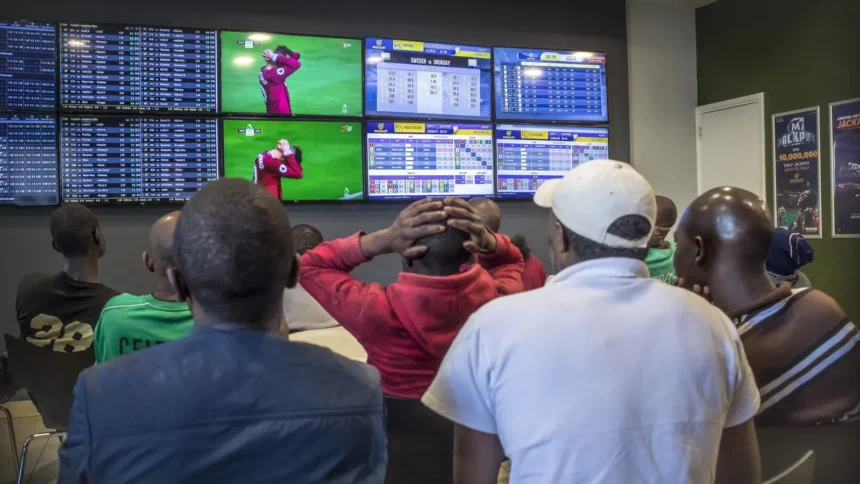Entertainment news Celebrity gossip Movie and TV show updates Latest celebrity news Trending entertainment stories
)
)
A mix of economic pressure, mobile access, social proof, and clever marketing turned a leisure activity into a quick, low-entry hustle that fits alongside studies, part-time work, and gigs.
For some, it is a brief earnings boost, for others, it becomes a risky habit. Understanding why betting took hold as a side hustle explains more about today’s youth economy than it does about sport.
Below are the factors that explain the shift and how each one helps explain the trend.
RECOMMENDED: What Nigerians are really doing online – Top 15 websites visited in 2025
1. Easy mobile access and fintech integration
Smartphones, mobile data, and instant payment rails mean staking money is as simple as a few taps. Betting apps and paylink integrations let users deposit small amounts, withdraw winnings quickly, and manage stakes without bank branches or long queues.
2. Low barrier to entry and perceived immediacy
You do not need qualifications or a formal setup to place a bet. Small stakes and the chance of fast returns make betting appealing as a quick cash source when freelancing gigs or salaries are slow to arrive.
3. Visible success stories and social proof
Winners post screenshots of payouts on social media and WhatsApp, and those posts spread quickly. Seeing peers claim big wins creates a fear of missing out and persuades more people to try staking small amounts in hopes of similar scores.
)
)
4. Aggressive marketing and influencer partnerships
Bookmakers sponsor events, sign influencers, and run targeted promos that reach young audiences. Signup bonuses, free bets, and cashback offers make the first few attempts feel low risk, encouraging repeated use.
EXPLORE: Single Bet Calculator: How to calculate your odds & winnings in seconds
5. Supplementing irregular incomes and gig work
For youths on internships, freelance contracts, or NYSC stipends, betting looks like a way to smooth gaps in cash flow. The irregular nature of gig pay makes the promise of a quick payday particularly tempting.
6. Learning culture and informal tip economies
Communities form around tips, match analysis, and prediction groups on Telegram and WhatsApp. Some users treat betting as a skill, sharing strategies and pooling small capital, which makes it feel more like organised side income than pure gambling.
7. Lack of affordable entertainment and viable alternatives
When job opportunities are scarce and leisure options limited, betting doubles as entertainment and a potential income source. The combination of boredom, communal activity, and the thrill of risk drives sustained engagement.
Betting can produce short-term gains, but it carries significant financial and emotional risks, so many youth groups advise treating it as entertainment rather than a core income strategy.
ALSO READ: 5 tips to help you quit your addiction to sports betting







